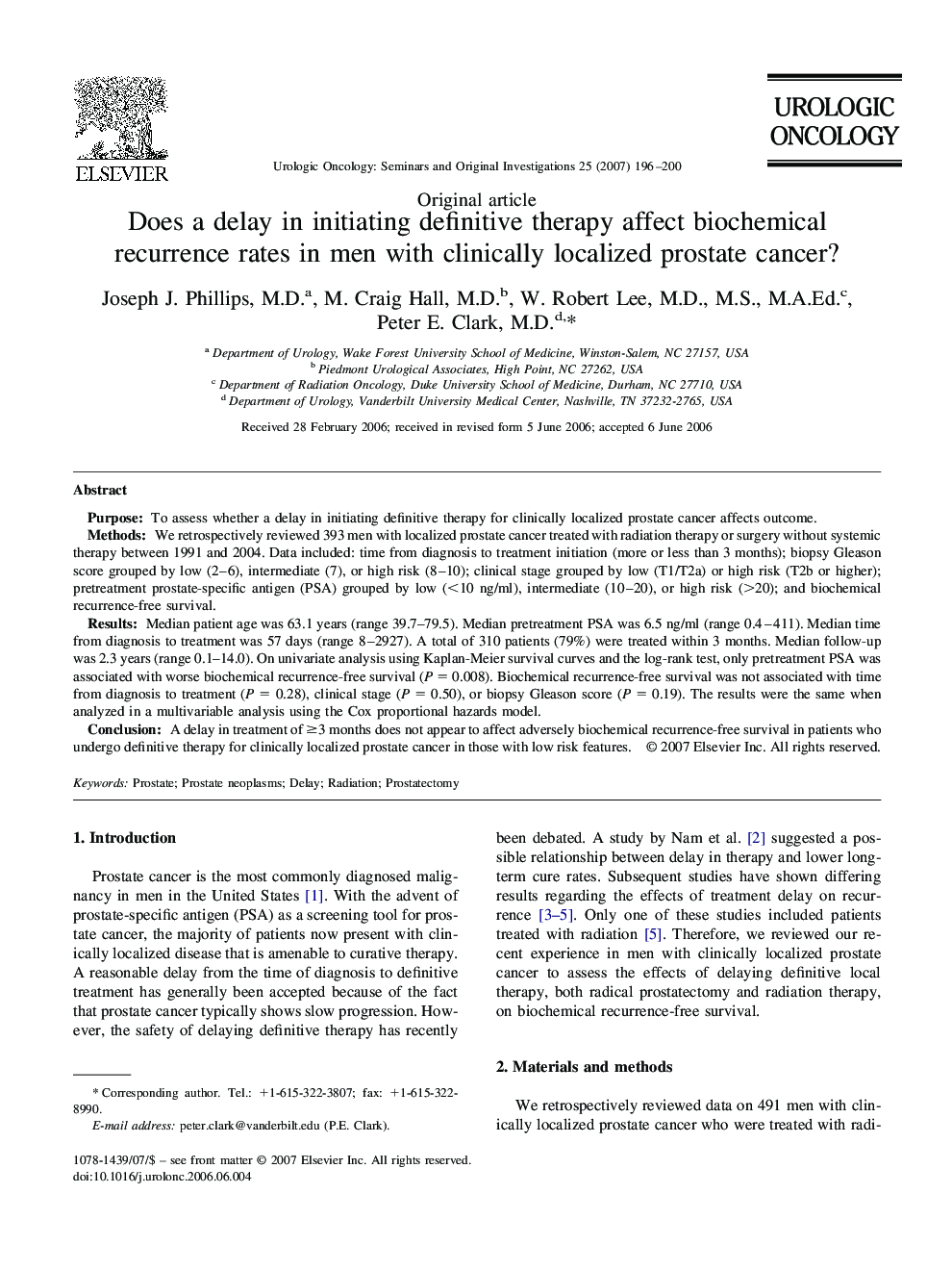| Article ID | Journal | Published Year | Pages | File Type |
|---|---|---|---|---|
| 4001623 | Urologic Oncology: Seminars and Original Investigations | 2007 | 5 Pages |
PurposeTo assess whether a delay in initiating definitive therapy for clinically localized prostate cancer affects outcome.MethodsWe retrospectively reviewed 393 men with localized prostate cancer treated with radiation therapy or surgery without systemic therapy between 1991 and 2004. Data included: time from diagnosis to treatment initiation (more or less than 3 months); biopsy Gleason score grouped by low (2–6), intermediate (7), or high risk (8–10); clinical stage grouped by low (T1/T2a) or high risk (T2b or higher); pretreatment prostate-specific antigen (PSA) grouped by low (<10 ng/ml), intermediate (10–20), or high risk (>20); and biochemical recurrence-free survival.ResultsMedian patient age was 63.1 years (range 39.7–79.5). Median pretreatment PSA was 6.5 ng/ml (range 0.4–411). Median time from diagnosis to treatment was 57 days (range 8–2927). A total of 310 patients (79%) were treated within 3 months. Median follow-up was 2.3 years (range 0.1–14.0). On univariate analysis using Kaplan-Meier survival curves and the log-rank test, only pretreatment PSA was associated with worse biochemical recurrence-free survival (P = 0.008). Biochemical recurrence-free survival was not associated with time from diagnosis to treatment (P = 0.28), clinical stage (P = 0.50), or biopsy Gleason score (P = 0.19). The results were the same when analyzed in a multivariable analysis using the Cox proportional hazards model.ConclusionA delay in treatment of ≥3 months does not appear to affect adversely biochemical recurrence-free survival in patients who undergo definitive therapy for clinically localized prostate cancer in those with low risk features.
